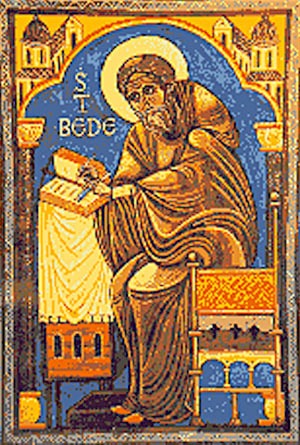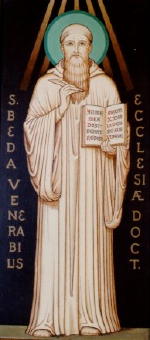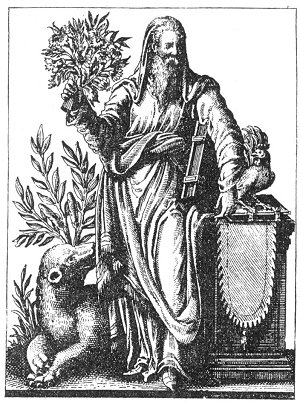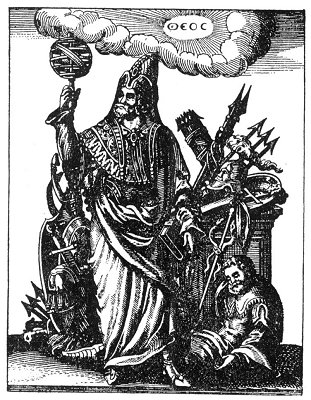It is probably here, in this harmony of work and devotion, that we may find the secret of the fascination in the record of his uneventful days. It reconciles the sharp antithesis between the active and the contemplative life. It seems to attain to that ideal of “toil unsever’d from tranquillity” which haunts us all, but which we have, almost ceased to associate with the life of man under present conditions. Balance, moderation, or rather, that rare quality which has been well called “the sanity of saintliness,” these give a unity to the life of Bede and preserve him from the exaggerations of the conventual ideal. With all his admiration for the ascetic life, he recognizes human limitations. It is cheering to find that even he felt the need of a holiday. “Having completed,” he writes, “the third book of the Commentary on Samuel, I thought I would rest awhile, and, after recovering in that way my delight in study and writing, proceed to take in hand the fourth.” Intellectual power commands his homage, but his mind is open to the appreciation of all forms of excellence. It is the unlearned brother, unfit for study and occupied in manual labour, to whom, in his story, it is vouchsafed to hear the singing of the angels who came to summon Ceadda to his rest. The life of devotion ranks highest in his estimation, but he records with approval how St. Cuthbert thought “that to afford the weak brethren the help of his exhortation stood in the stead of prayer, knowing that He Who said ‘Thou shalt love the Lord thy God,’ said likewise, ‘Thou shalt love thy neighbour as thyself.’” He tells us how St. Gregory bewailed his own loss in being forced by his office to be entangled in worldly affairs. “But,” adds the human-hearted biographer, “it behoves us to believe that he lost nothing of his monastic perfection by reason of his pastoral charge, but rather that he gained greater profit through the labour of converting many, than by the former calm of his private life.” Yet he holds that this immunity from the evil influence of the world was chiefly due to Gregory’s care in organizing his house like a monastery and safeguarding the opportunities for prayer and devotional study, even while he was immersed in affairs at the court of Constantinople, and afterwards, when he held the most onerous office in the Church.
This quality of sanity shows itself again in an unusual degree of fairness to opponents. The Paschal error, indeed, moves his indignation in a manner which is incomprehensible and distasteful to the modern reader, but even in the perverse and erring Celts he can recognize “a zeal of God, though not according to knowledge.” Aidan’s holiness of life wins from him a warm tribute of admiration. In the monks of lona, the stronghold of the Celtic system, he can perceive the fruit of good works and find an excuse for their error in their isolated situation. In the British Church it is the lack of missionary zeal, rather than their attitude towards the Easter question, which calls forth his strongest condemnation.
A characteristic akin to this is his love of truth. As a historian, it shows itself in his scrupulous care in investigating evidence and in acknowledging the sources from which he draws. Nowhere is his intellectual honesty more apparent than in dealing with what he believes to be the miraculous element in his history. In whatever way we may regard these anecdotes, there can be no doubt that Bede took the utmost pains to assure himself of their authenticity. He is careful to acquire, if possible, first-hand evidence; where this cannot be obtained, he scrupulously mentions the lack of it. He admits only the testimony of witnesses of high character and generally quotes them by name.
These are but a few of the glimpses afforded us of the personality of Bede, a personality never obtruded, but everywhere unconsciously revealed in his work. Everywhere we find the impress of a mind of wide intellectual grasp, a character of the highest saintliness, and a gentle refinement of thought and feeling. The lofty spirituality of Bede, his great learning and scholarly attainment are the more striking when we reflect how recently his nation had emerged from barbarism and received Christianity and the culture which it brought with it to these shores.

Moe is the founder of GnosticWarrior.com. He is a father, husband, author, martial arts black belt, and an expert in Gnosticism, the occult, and esotericism.







